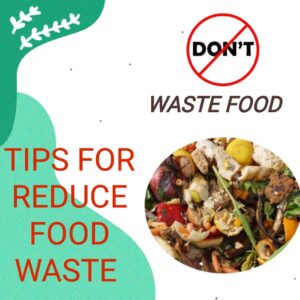
Sustainable Kitchen
In a world where millions go to bed empty every night, food waste is an intimidating problem. According to the United Nations, roughly one- third of all food produced encyclopedically goes to waste. Not only does this squander precious coffers like water, energy, and land, but it also contributes to hothouse gas emigrations. Fortunately, we can make a significant impact right in our own kitchens by espousing practices that reduce food waste. In this blog, we will explore some practical tips for creating a Sustainable kitchen by minimizing food waste.
Read more….. Waste management: What you Need to Know
Plan Your refection
One of the most effective ways to reduce food waste is to plan your refection in advance. Before heading to the grocery store, take a moment to consider what you will be cooking for the week. Make a shopping list grounded on your mess plan, icing you only buy the particulars you need. By having a plan in place, you are less likely to buy redundant food that might end up going to waste.
Shop Smart
When grocery shopping, be aware of expiration dates and buy perishable particulars with a realistic timeframe in mind. Avoid buying in bulk unless you have a clear plan for using the particulars. conclude for loose yield rather than pre-packaged goods to minimize packaging waste. Consider shopping at original growers’ requests, where you can frequently find fresher yield and support original farmers.
Plan for leftover Food properly:
for a sustainable kitchen leftover food needs to be disposed properly. but they can be a fantastic way to reduce food waste and save time in the kitchen. When preparing refection, designedly cook redundant portions for unborn lunches or feasts. Invest in applicable holders to store leavings safely, and label them with dates to insure you use them before they spoil. Get creative with repurposing leavings into new dishes to keep your refection instigative.
Practice First- In, First- Out( FIFO):
apply a” first- in, first- out” system in your closet and refrigerator. When discharging groceries, move older particulars to the front, so they get used before newer purchases. This simple strategy helps help forgotten particulars from sagging in the reverse and ultimately expiring.
Understand Food Labels
Food markers can be confusing, and numerous people discard impeccably good particulars because they misinterpret them. Learn to distinguish between” stylish before” and” use by” dates.” Stylish before” dates indicate when food is at its peak quality but aren’t strict deadlines for consumption.” Use by” dates are more critical, suggesting when food may come unsafe to eat. Use your senses — smell, taste, and sight — to determine if a food item is still good rather than counting solely on markers.
For the Sustainable Kitchen Get Creative with Scraps:
Do not throw away vegetable scraps, meat bones, or fruit peels! These can be used to make succulent stocks, broths, and gravies. also, consider composting your kitchen scraps if possible. Composting not only reduces waste but also creates nutrient-rich soil for use in your garden and farm.
Proper storehouse
for a sustainable kitchen make a proper store house. duly storing food is pivotal for extending its shelf life. in watertight holders for dry goods, use resealable bags for particulars like rubbish, and keep fruits and vegetables in the crisper snuggeries of your refrigerator. Keep an eye on temperature settings in your fridge and freezer to insure particulars are stored at the optimal temperature and careful not to spoil your food.
For a Sustainable kitchen Use Your Freezer Wisely
The freezer is a important tool for reducing food waste. indurate them for latterly, If you have redundant perishables that you will not use in time. This works well for particulars like fruits, vegetables, and indeed leftover gravies. Just flash back to label and date particulars so you can fluently identify them easily.
For a Sustainable Kitchen Educate Yourself and Others:
Stay informed about food waste and partake your knowledge with musketeers and family. The further people understand the impact of food waste, the more likely they’re to borrow sustainable practices in their own kitchens.
Conclusion
Reducing food waste isn’t only an ethical and environmental imperative but also a practical way to save plutocrat. By enforcing these tips and espousing a more aware approach to food consumption, you can play a significant part in creating a greener, Sustainable kitchen and contributing to a further sustainable future. Flash back, small changes in your diurnal habits can have a big impact on reducing food waste and making a difference in the world. So, let’s start moment and work together to combat this pressing issue.
for more details visit klimrus